Discover which countries rely most heavily on tourism revenue and how they attract visitors. SIXT.VN can help you plan your visit to these destinations, providing reliable airport transfers, comfortable hotel bookings, and exciting tours. With SIXT.VN, exploring tourism-dependent nations becomes seamless and enjoyable, ensuring you experience the best each destination offers, from pristine beaches to historical landmarks.
1. What Makes a Country “Tourism Dependent”?
A country is considered tourism-dependent when a significant portion of its Gross Domestic Product (GDP) comes from tourism revenue. This reliance often results from factors like small economies, appealing natural landscapes, and well-developed tourist infrastructure. These countries often thrive on the influx of international visitors, whose spending supports local businesses and the national economy.
1.1 How is Tourism Dependency Measured?
Tourism dependency is typically measured by calculating the ratio between the revenue generated from foreign visitors and the country’s total GDP. According to research from the World Tourism Organization (UNWTO) in 2022, this ratio offers a clear view of how much a nation’s economy relies on tourism. A higher percentage indicates a greater dependency.
1.2 What Factors Contribute to a Country’s Tourism Dependence?
Several factors contribute to a country’s tourism dependence:
- Natural Attractions: Beautiful beaches, unique landscapes, and favorable climates draw tourists.
- Small Economy: Smaller economies often rely more heavily on tourism as a primary revenue source.
- Developed Infrastructure: Well-developed tourism infrastructure, including hotels, transportation, and tour services, enhances the visitor experience and encourages repeat visits.
- Cultural Heritage: Historical sites, cultural events, and local traditions attract tourists interested in experiencing the local culture.
2. Which Countries Are Most Reliant on Tourism?
Here are the top countries that rely most on tourism for their economic well-being, showcasing their unique attractions and the impact of tourism on their GDP:
2.1 Maldives
Population: 515,000
GDP: $6.2 billion
Area: 300 km²
In 2022, revenue from foreign visitors equaled 68% of the GDP of the Maldives. With 1.7 million visitors spending $4.2 billion, the average spend per visitor was $2,500.
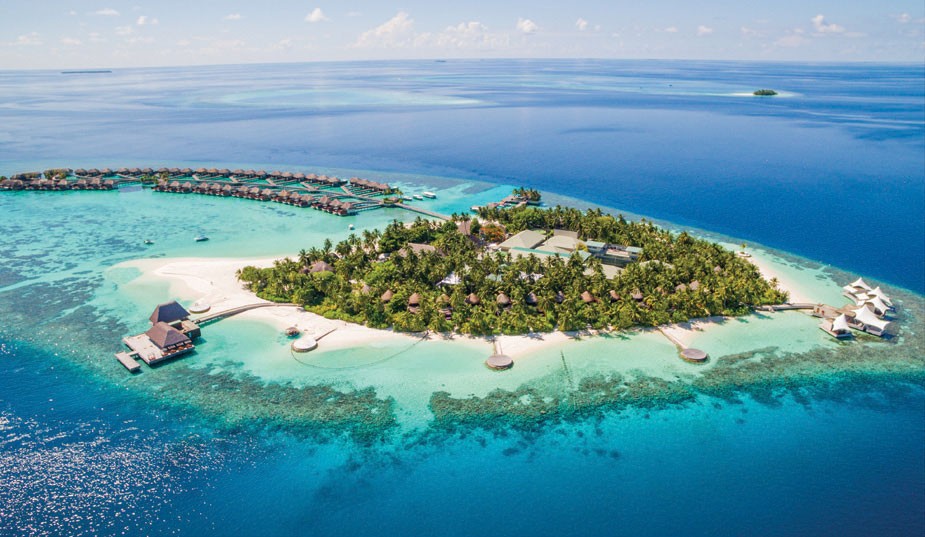 Maldives Beach
Maldives Beach
The Maldives, an archipelago of 1,190 small islands in the Indian Ocean, relies heavily on tourism. With a per capita income of $36,400 (PPP), it is a rich country. The Maldives gained independence from the UK in 1965. Temperatures range between 25 and 35 degrees Celsius all year round, offering ideal seaside holidays. Some hotels can cost over $5,000 per night.
2.2 Antigua and Barbuda
Population: 101,000
GDP: $1.7 billion
Area: 440 km²
In 2022, revenue from foreign visitors equaled 55% of Antigua and Barbuda’s GDP. With 265,000 visitors spending $921 million, the average spend per visitor was $3,500.
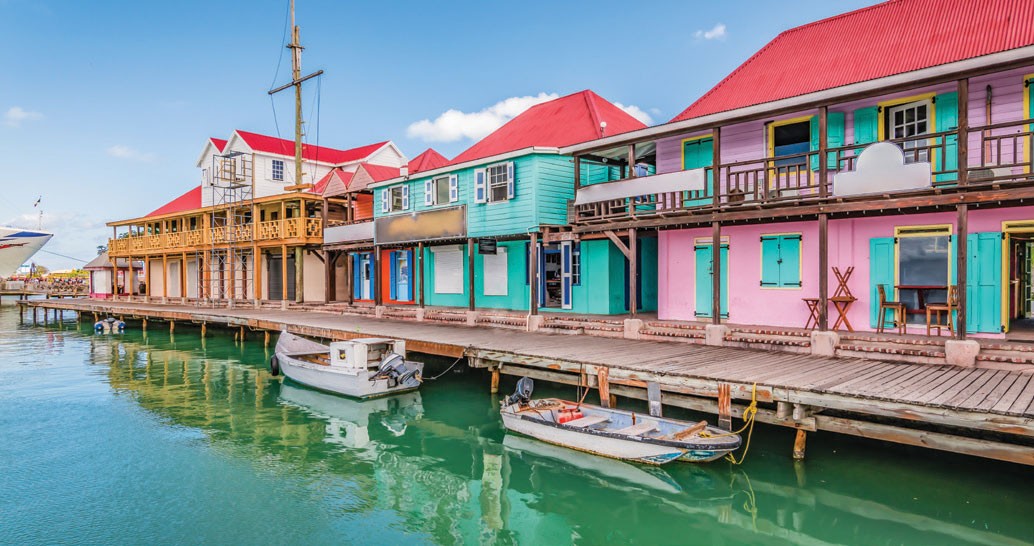 Antigua and Barbuda Beach
Antigua and Barbuda Beach
Antigua and Barbuda, a Caribbean island nation, has a per capita income of $31,000 (PPP). It was a British colony until 1958 and achieved complete independence in 1981. Tourism accounts for half of the country’s economy, linked to its beaches. The tourist season lasts six to seven months, and much of the country is covered by a national park.
2.3 Seychelles
Population: 100,000
GDP: $1.9 billion
Area: 457 km²
In 2022, revenue from foreign visitors equaled 23.1% of the GDP of the Seychelles. With 332,000 visitors spending $932 million, the average spend per visitor was $2,800.
The Seychelles, located in the Indian Ocean north of Madagascar, consists of over 100 small islands, 33 of which are inhabited. The average annual income per capita is $40,000 (PPP), making it a wealthy country. It gained independence from the UK in 1976. The official languages are French and English. With year-round summer temperatures between 24 and 30 degrees Celsius, its beaches are ideal for seaside holidays.
2.4 Jamaica
Population: 2.8 million
GDP: $16 billion
Area: 10,991 km²
In 2022, revenue from foreign visitors equaled 23.1% of Jamaica’s GDP. With 2.5 million visitors spending $3.7 billion, the average spend per visitor was $1,500.
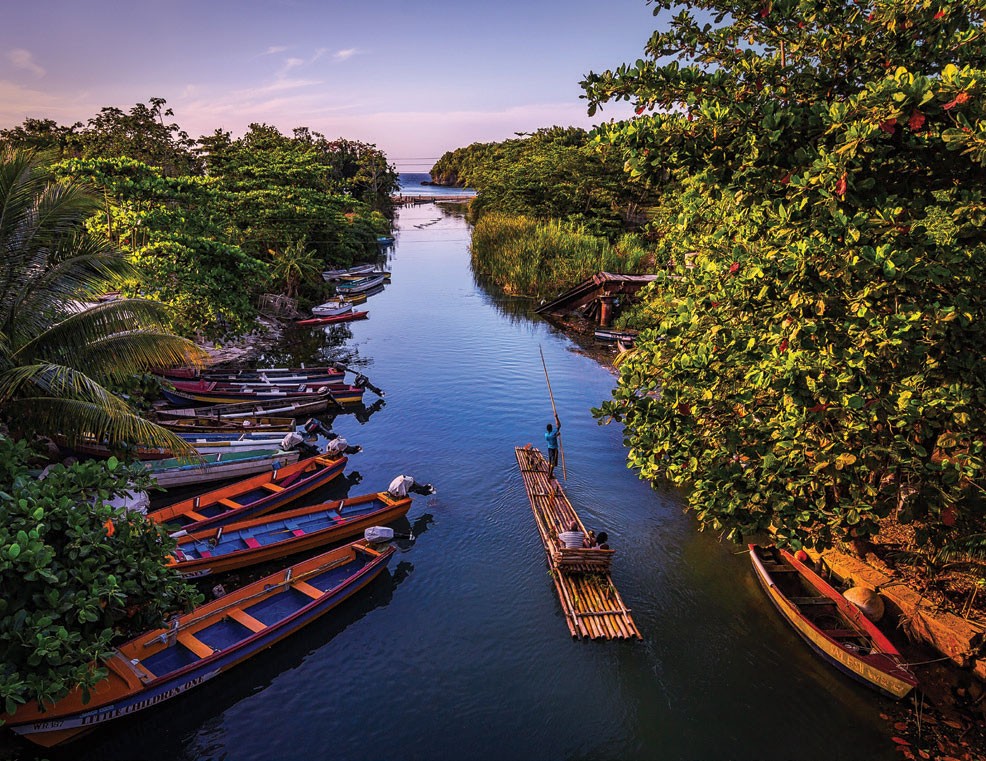 Jamaica Beach
Jamaica Beach
Jamaica, an island nation in the Caribbean near Cuba, relies on tourism. The average annual per capita income is $12,000 (PPP). It gained independence from the UK in 1962. Jamaica attracts tourists with its clear sea, hot sun, and white sand. The beach season lasts 10 months, and attractions include canyons, waterfalls, and forests.
2.5 Belize
Population: 441,000
GDP: $3 billion
Area: 22,966 km²
In 2022, revenue from foreign visitors equaled 20.3% of Belize’s GDP. With 371,000 visitors spending $600 million, the average spend per visitor was $1,620.
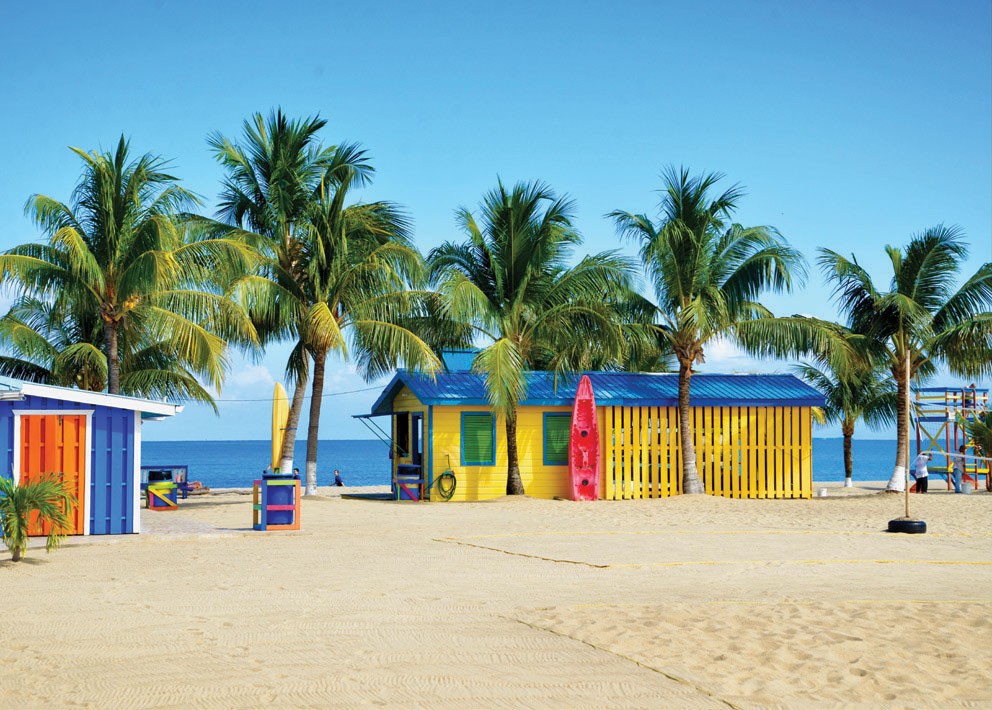 Belize Coastline
Belize Coastline
Belize, located on the Caribbean coast south of Mexico, is a developing country. The average annual per capita income is $9,600 (PPP). It obtained independence from the UK in 1981. The high share of tourism in the country’s economy is due to the small size of the economy and the underdevelopment of other sectors. The coast, ancient Mayan temples, and the famous Blue Hole attract tourists. The average temperature varies between 24 and 28 degrees Celsius throughout the year.
2.6 Croatia
Population: 3.9 million
GDP: $71 billion
Area: 56,594 km²
In 2022, revenue from foreign visitors equaled 18.9% of Croatia’s GDP. With 15.3 million visitors spending $13.5 billion, the average spend per visitor was $900.
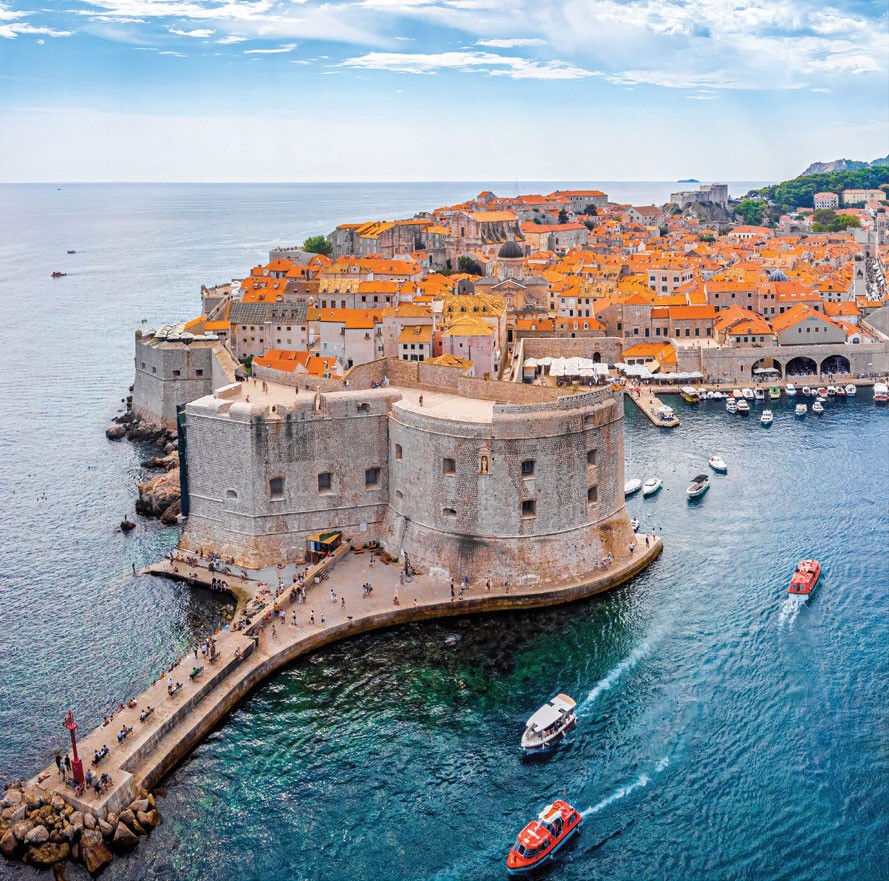 Dubrovnik, Croatia
Dubrovnik, Croatia
Croatia, located on the shores of the Mediterranean Sea with a 1,800 km coastline along the Adriatic, joined the European Union in 2013. Per capita income is $42,500 (PPP), making it a relatively wealthy country. Tourists are drawn to the coast, historical monuments, and architecture. The Old Town of Dubrovnik, a UNESCO World Heritage Site, is a popular destination, further boosted by being featured in “Game of Thrones”.
2.7 Montenegro
Population: 602,000
GDP: $6.1 billion
Area: 13,812 km²
In 2022, revenue from foreign visitors equaled 18.2% of Montenegro’s GDP. With two million visitors spending $1.1 billion, the average spend per visitor was $550.
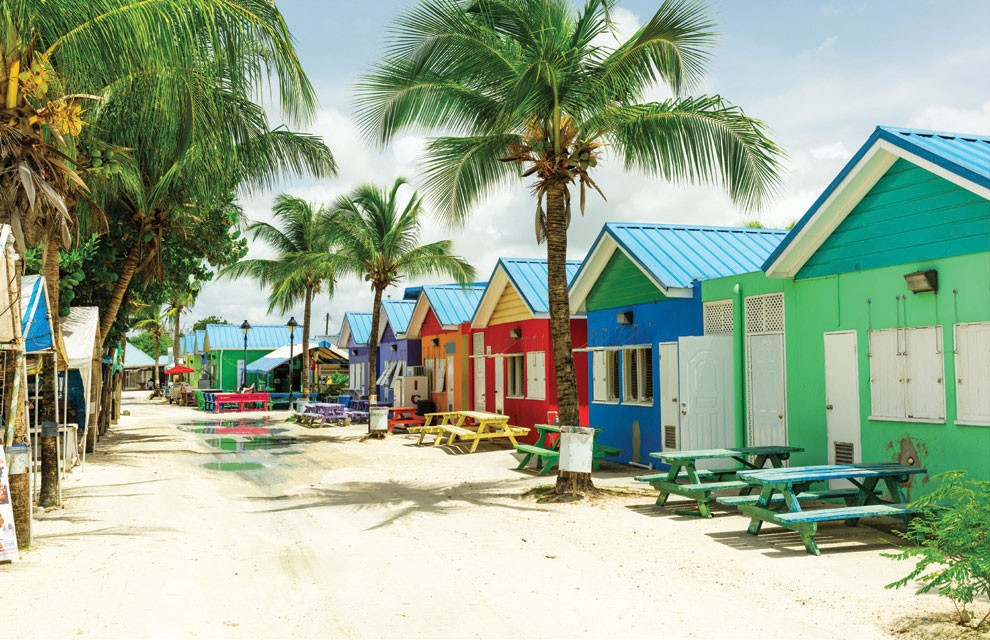 Montenegro Coast
Montenegro Coast
Montenegro, in the north of the Balkan Peninsula on the Adriatic Sea coast, has a per capita income of $29,000 (PPP). Tourists are attracted to its coastline, which extends from the mountain slopes. Montenegro has a 296-kilometer coastline dotted with well-preserved old towns, historical monuments, and architecture. Popular destinations include the 15th-century settlement Sveti Stefan.
2.8 Barbados
Population: 268,000
GDP: $5.7 billion
Area: 439 km²
In 2022, revenue from foreign visitors equaled 16.2% of Barbados’s GDP. With 443,000 visitors spending $929 million, the average spend per visitor was $2,100.
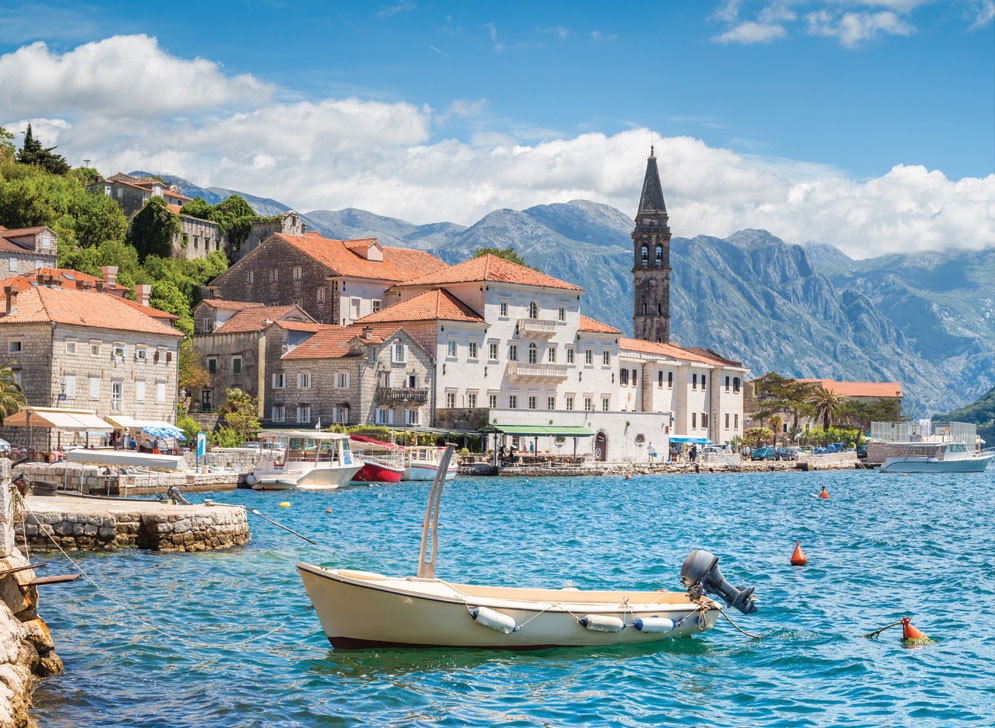 Barbados Beach
Barbados Beach
Barbados, a Caribbean Island north of Venezuela, has an average annual income per capita of $18,000 (PPP). It gained independence from the UK in 1958, with English as the official language. The dry season from January to May is ideal for seaside tourism, known for its white sand and green sea.
2.9 Albania
Population: 2.8 million
GDP: $18.5 billion
Area: 28,748 km²
In 2022, revenue from foreign visitors equaled 16.2% of Albania’s GDP. With 6.7 million visitors spending $3 billion, the average spend per visitor was $440.
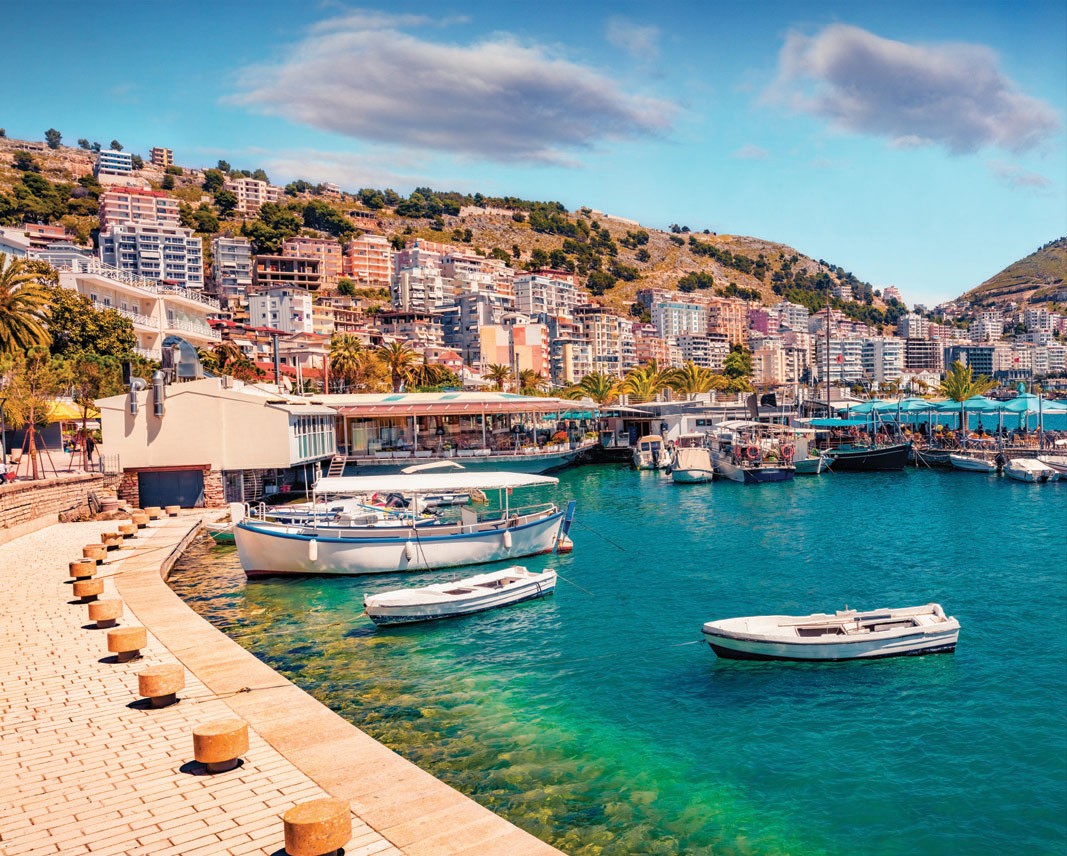 Albanian Riviera
Albanian Riviera
Albania, located west of the Balkan Peninsula on the Adriatic Sea coast, has a per capita income of $17,800 (PPP). Tourists are attracted by its beaches with white sand and clean water, historical and archaeological monuments, and medical tourism. Three cities are UNESCO World Heritage Sites: Butrint, Gjirokastër, and Berat.
2.10 Fiji
Population: 926,000
GDP: $4.8 billion
Area: 18,274 km²
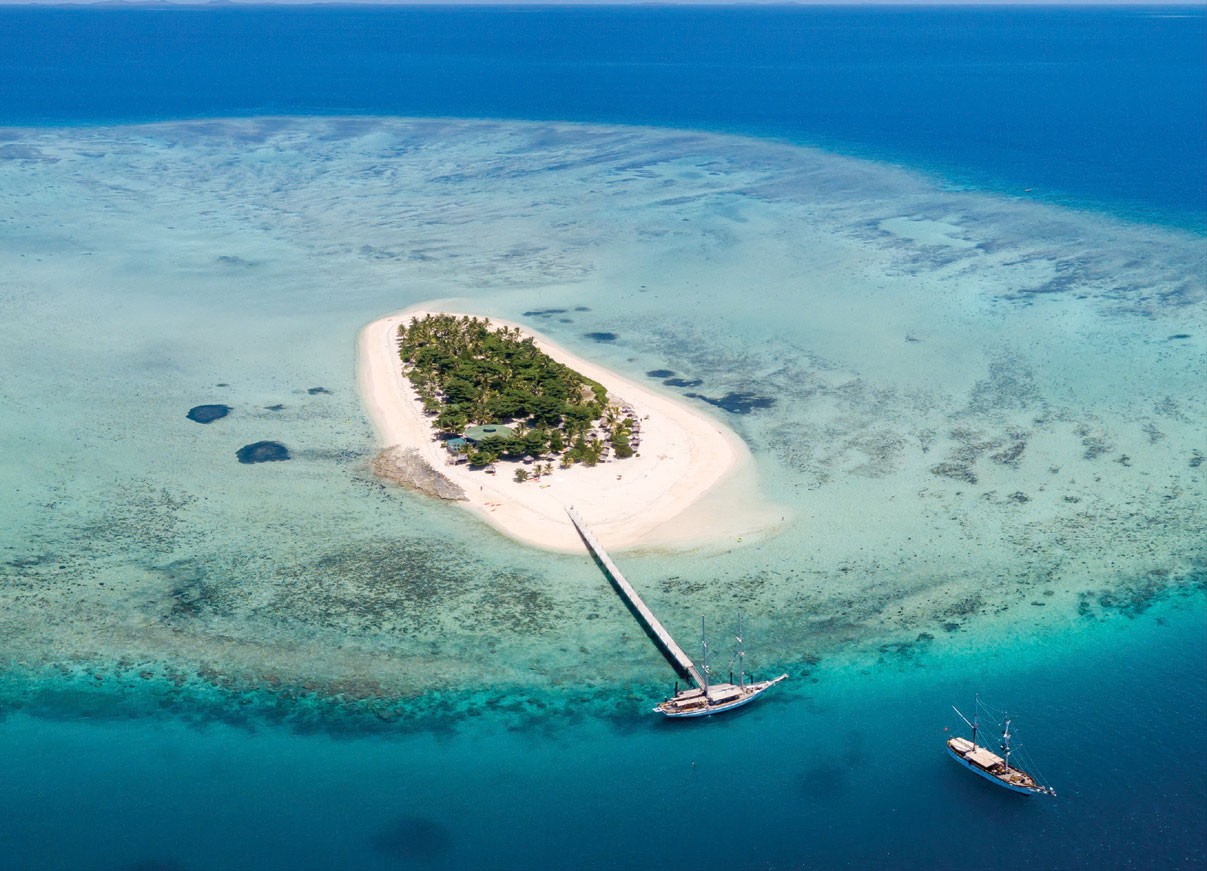 Fiji Beach
Fiji Beach
In 2022, revenue from foreign visitors equaled 14.33% of Fiji’s GDP. With 636,000 visitors spending $700 million, the average spend per visitor was $1,100.
Fiji, a small island country in the southwest Pacific Ocean, consists of 330 islands. It is a developing country with an average annual per capita income of $14,000 (PPP). It achieved independence from the United Kingdom in 1970. Tourists are attracted to its fantastic beaches with white sand, palm trees, and clear water, tropical forests, and traditional villages. Fiji has a tropical climate with an average temperature of 22 degrees Celsius, even during the coldest period, but it also rains frequently.
3. Why Is Tourism So Important to These Countries?
Tourism is crucial for these countries for several reasons:
- Economic Growth: Tourism significantly boosts GDP, providing jobs and revenue for local businesses.
- Employment Opportunities: The tourism sector creates a wide range of jobs, from hotel staff and tour guides to restaurant workers and transportation providers.
- Infrastructure Development: Tourism encourages investment in infrastructure, improving roads, airports, and other facilities that benefit both tourists and residents.
- Foreign Exchange Earnings: Tourism brings in foreign currency, which helps stabilize the economy and fund imports.
4. What Are the Benefits and Drawbacks of Tourism Dependence?
While tourism can bring significant benefits, it also has potential drawbacks:
4.1 Benefits of Tourism Dependence
- Economic Diversification: Tourism can diversify an economy, reducing reliance on other sectors that may be volatile.
- Cultural Exchange: Tourism promotes cultural exchange and understanding between visitors and local communities.
- Conservation Efforts: Tourism can fund conservation efforts, protecting natural resources and cultural heritage sites.
- Improved Living Standards: Tourism can improve living standards by providing income and opportunities for local residents.
4.2 Drawbacks of Tourism Dependence
- Economic Vulnerability: Over-reliance on tourism can make a country vulnerable to economic shocks, such as pandemics or natural disasters.
- Environmental Impact: Tourism can have negative impacts on the environment, including pollution, deforestation, and damage to natural habitats.
- Cultural Commodification: Local cultures can be commodified and exploited for tourism, leading to a loss of authenticity.
- Social Disruption: Tourism can disrupt local communities, leading to increased crime, social inequality, and displacement of residents.
5. What Can Tourism Dependent Countries Do to Diversify Their Economies?
To reduce their dependence on tourism, these countries can take several steps:
- Develop Other Industries: Invest in other sectors such as agriculture, manufacturing, and technology to diversify the economy.
- Promote Education and Skills Training: Improve education and skills training to create a more skilled workforce capable of supporting diverse industries.
- Encourage Entrepreneurship: Support local entrepreneurs and small businesses to create new economic opportunities.
- Sustainable Tourism Practices: Implement sustainable tourism practices to minimize environmental impact and preserve cultural heritage.
6. How Has the COVID-19 Pandemic Affected Tourism Dependent Countries?
The COVID-19 pandemic had a devastating impact on tourism-dependent countries. Travel restrictions and lockdowns led to a sharp decline in international arrivals, resulting in significant economic losses. According to the United Nations World Tourism Organization (UNWTO), international tourist arrivals decreased by 74% in 2020, leading to an estimated loss of $1.3 trillion in export revenues. This crisis highlighted the vulnerability of countries heavily reliant on tourism.
6.1 Strategies for Recovery
To recover from the pandemic, tourism-dependent countries are focusing on:
- Health and Safety Measures: Implementing strict health and safety protocols to rebuild traveler confidence.
- Domestic Tourism: Encouraging domestic tourism to offset the decline in international arrivals.
- Diversification Efforts: Accelerating efforts to diversify their economies and reduce reliance on tourism.
- Financial Support: Seeking financial assistance from international organizations and governments to support recovery efforts.
7. What are Some Emerging Trends in Tourism?
Several emerging trends are shaping the future of tourism:
- Sustainable Tourism: Travelers are increasingly seeking sustainable and responsible tourism options that minimize environmental impact and support local communities.
- Experiential Travel: Tourists are looking for authentic experiences that allow them to immerse themselves in local culture and traditions.
- Digitalization: Technology is playing a greater role in tourism, with travelers using online platforms to plan and book trips, access information, and share experiences.
- Wellness Tourism: More people are incorporating wellness activities into their trips, seeking relaxation, rejuvenation, and health-focused experiences.
8. How Can You Experience These Tourism-Dependent Countries with SIXT.VN?
SIXT.VN offers a range of services to make your travel experience seamless and enjoyable:
- Airport Transfers: Start your trip stress-free with reliable airport transfer services. SIXT.VN ensures you arrive at your destination comfortably and on time.
- Hotel Bookings: Find the perfect accommodation with SIXT.VN’s extensive selection of hotels. Whether you’re looking for luxury resorts or budget-friendly options, SIXT.VN has you covered.
- Guided Tours: Explore the best attractions with expertly guided tours. SIXT.VN provides knowledgeable guides who can show you the highlights and hidden gems of each destination.
8.1 Booking Your Trip with SIXT.VN: A Step-by-Step Guide
- Visit SIXT.VN: Go to the SIXT.VN website to start planning your trip.
- Select Your Destination: Choose the tourism-dependent country you want to visit.
- Choose Your Services: Select the services you need, such as airport transfers, hotel bookings, and guided tours.
- Customize Your Itinerary: Tailor your itinerary to match your interests and preferences.
- Confirm and Book: Review your selections and confirm your booking. SIXT.VN offers secure payment options for your peace of mind.
8.2 Why Choose SIXT.VN?
- Convenience: SIXT.VN provides a one-stop-shop for all your travel needs, making planning easy and efficient.
- Reliability: SIXT.VN partners with trusted service providers to ensure a high-quality and reliable experience.
- Expert Support: SIXT.VN offers expert support to help you plan your trip and address any questions or concerns.
9. What Are Some Must-See Attractions in These Countries?
Each of these tourism-dependent countries offers unique attractions:
- Maldives: Pristine beaches, luxury resorts, and vibrant coral reefs.
- Antigua and Barbuda: Beautiful beaches, historic sites, and lush national parks.
- Seychelles: Stunning beaches, unique wildlife, and lush tropical forests.
- Jamaica: Vibrant culture, beautiful beaches, and stunning waterfalls.
- Belize: Ancient Mayan ruins, the famous Blue Hole, and diverse marine life.
- Croatia: Historic cities, stunning coastline, and beautiful national parks.
- Montenegro: Dramatic mountains, picturesque coastline, and historic towns.
- Barbados: Beautiful beaches, historic plantations, and vibrant nightlife.
- Albania: Ancient ruins, stunning beaches, and picturesque mountain scenery.
- Fiji: Beautiful beaches, lush rainforests, and vibrant coral reefs.
10. How Can Travelers Support Local Communities in Tourism Dependent Countries?
Supporting local communities is essential for sustainable tourism:
- Shop Locally: Buy souvenirs and goods from local artisans and businesses.
- Eat at Local Restaurants: Dine at local restaurants and try traditional cuisine.
- Stay in Locally Owned Accommodations: Choose to stay in locally owned hotels or guesthouses.
- Respect Local Culture: Be respectful of local customs and traditions.
- Engage in Responsible Tourism: Choose tour operators and activities that prioritize sustainability and community benefits.
FAQ: Tourism Dependent Countries
1. What exactly does tourism-dependent mean?
Tourism-dependent means that a significant portion of a country’s economy relies on revenue generated from tourism activities. This reliance is often measured by the ratio of tourism revenue to the country’s total GDP.
2. Which country is most dependent on tourism?
The Maldives is the most tourism-dependent country, with tourism revenue accounting for approximately 68% of its GDP in 2022.
3. How does tourism benefit these countries?
Tourism provides economic growth, employment opportunities, infrastructure development, and foreign exchange earnings, all crucial for supporting local businesses and improving living standards.
4. What are the negative impacts of tourism dependence?
Negative impacts include economic vulnerability to external shocks, environmental degradation, cultural commodification, and potential social disruption within local communities.
5. What can countries do to reduce tourism dependence?
Countries can diversify their economies by developing other industries, promoting education and skills training, encouraging entrepreneurship, and implementing sustainable tourism practices to mitigate negative impacts.
6. How did COVID-19 affect tourism-dependent countries?
The COVID-19 pandemic led to a sharp decline in international tourist arrivals, resulting in significant economic losses and highlighting the vulnerability of countries heavily reliant on tourism revenue.
7. What are the emerging trends in tourism now?
Emerging trends include sustainable tourism, experiential travel, digitalization, and wellness tourism, which are shaping the future of the travel industry.
8. How can I travel responsibly in these countries?
Support local communities by shopping locally, eating at local restaurants, staying in locally owned accommodations, respecting local culture, and choosing responsible tourism operators.
9. What are some must-see attractions in tourism-dependent countries?
Attractions vary but often include pristine beaches, historic sites, national parks, ancient ruins, and unique cultural experiences, depending on the specific country you visit.
10. How can SIXT.VN help me plan my trip to these countries?
SIXT.VN offers convenient airport transfers, extensive hotel bookings, and expertly guided tours, ensuring a seamless and enjoyable travel experience to tourism-dependent countries.
Ready to explore the world’s most tourism-dependent countries? Let SIXT.VN be your guide! From convenient airport transfers to comfortable hotel bookings and exciting guided tours, SIXT.VN ensures a seamless and unforgettable travel experience.
Address: 260 Cau Giay, Hanoi, Vietnam
Hotline/Whatsapp: +84 986 244 358
Website: SIXT.VN



